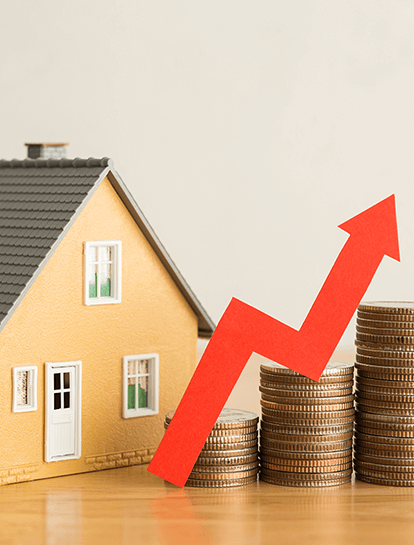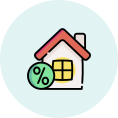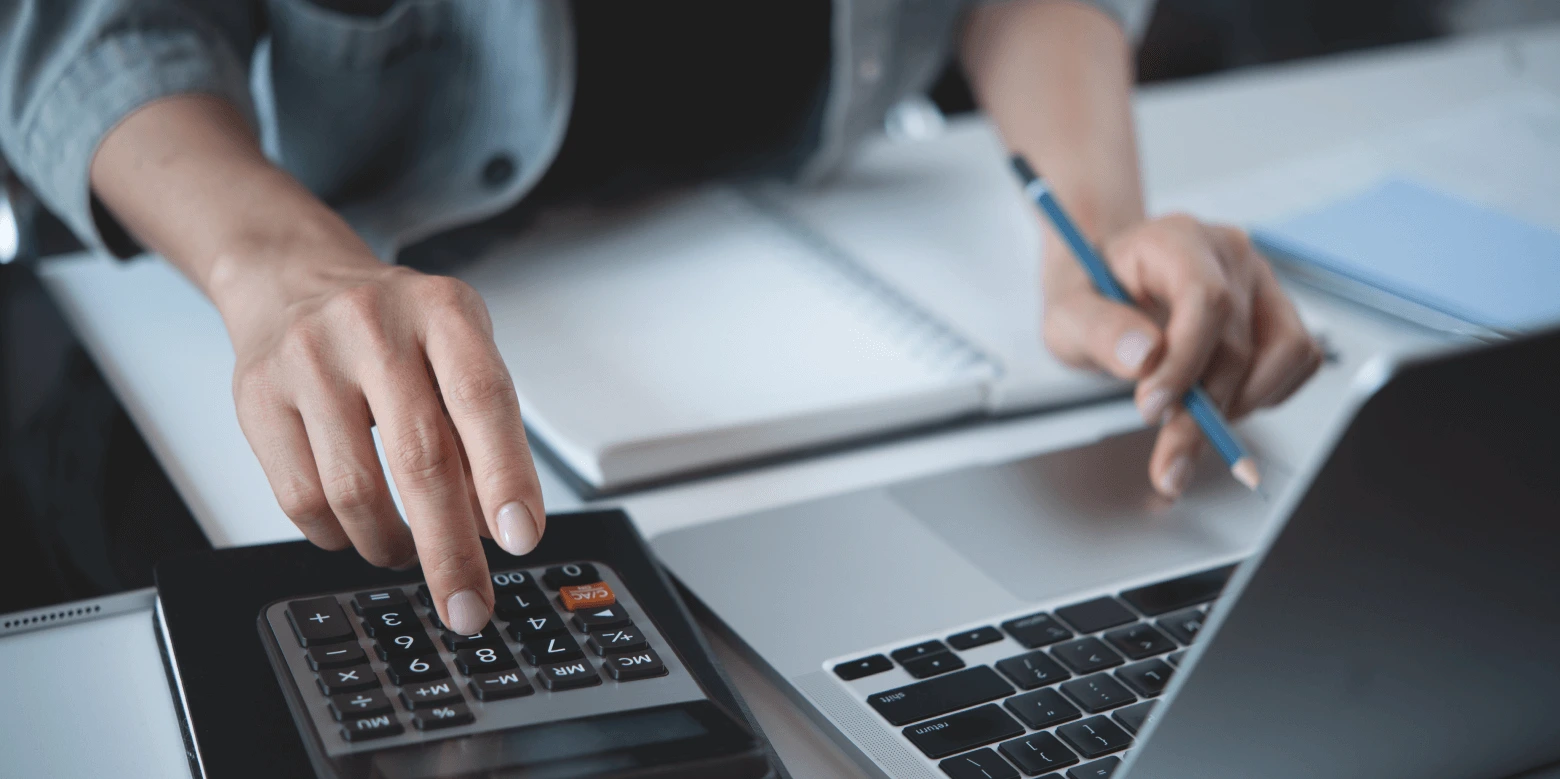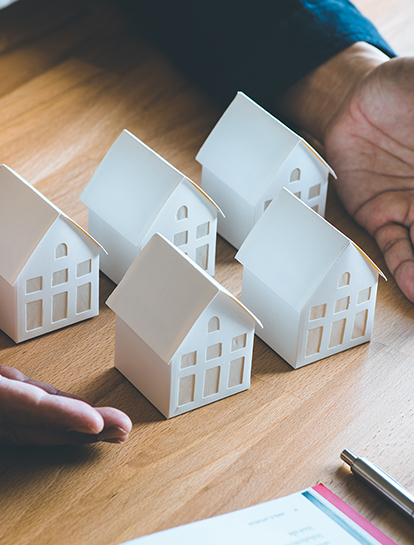Investment property loans are essential tools for those looking to grow their wealth through real estate in Brisbane. North Brisbane Home Loans offers tailored solutions and expert advice to help investors secure the right loan and maximise returns on their property investments.
What is Investment Property?
An investment property refers to a property that is purchased with the intention of earning income through renting it out, as opposed to using it as a primary residence.
Investment properties can include single-family homes, apartments, and commercial buildings, among others. These properties may be purchased with the goal of generating rental income, as well as capital appreciation over time.
In Australia, investment properties are subject to certain tax regulations. Investors should be aware of these before making a purchase.
What are Investment Property Loans?
An investment property loan is a type of financing specifically used for purchasing a property that will not be used as the borrower’s primary residence. This property is used for generating rental income, profiting from real estate appreciation, or for resale.
Unlike loans for primary residences, investment property loans often have higher interest rates and require larger down payments. This is because they are considered higher risk by lenders. The eligibility criteria for these loans typically include:
-
strong credit score
-
lower debt-to-income ratio
-
proven track record in property management or investment.
This loan can be used for various types of properties including single-family homes, multi-family units, and commercial real estate. Lenders evaluate the potential rental income of the property and the investor’s experience in real estate to determine loan qualification.
Investment property loans enable investors to expand their portfolios and generate passive income, but they also come with risks like fluctuating property values and the responsibility of managing tenants or maintaining the property.
8 Reasons Why People Get Loans for Investment Property
Taking out investment property loans and investing in real estate has long been a popular avenue for individuals seeking to build wealth and achieve financial stability. There are several compelling reasons why people are drawn to these loans for investment property, each offering unique advantages and opportunities for growth.
From the allure of generating steady rental income to the potential for property value appreciation, real estate investments present a multifaceted approach to growing one’s financial portfolio. These reasons, along with the additional benefits of portfolio diversification, tax advantages, and more, make investment properties an attractive option for many.
Here are eight key reasons why people consider investment property loans and investing in property:
RENTAL INCOME
Investment properties can generate steady rental income, providing a continuous source of revenue. This income can not only cover the mortgage and other property-related expenses but also potentially yield a significant profit margin. Furthermore, with good property management, rental income can increase over time, enhancing the investment’s profitability.
Property Value Appreciation
Over time, real estate typically appreciates in value, offering the potential for a significant return on investment when the property is sold. This appreciation in property value can be due to market dynamics, improvements made to the property, or development in the surrounding area. As a long-term investment, real estate often provides financial rewards that align with or surpass market trends, even when you use loans for investment property to purchase these.
DIVERSIFICATION OF INVESTMENT PORTFOLIO
Real estate investment can diversify an investment portfolio, providing a balance against more volatile assets like stocks and bonds. By including tangible assets such as property, investors can reduce overall risk and achieve a more stable financial portfolio. This diversification is particularly beneficial during economic downturns when traditional investments might underperform.
DIVERSIFICATION OF INVESTMENT PORTFOLIO
Real estate investment can diversify an investment portfolio, providing a balance against more volatile assets like stocks and bonds. By including tangible assets such as property, investors can reduce overall risk and achieve a more stable financial portfolio. This diversification is particularly beneficial during economic downturns when traditional investments might underperform.
TAX BENEFITS
Getting investment property loans and owning investment property can offer various tax deductions, which can significantly reduce taxable income. These deductions include mortgage interest, property taxes, operating expenses, depreciation, and costs for repairs and maintenance. Such tax advantages can improve the overall profitability of the investment.
INFLATION HEDGE
Real estate investments are often considered a hedge against inflation, as property values and rental income typically increase with rising inflation. This means that as the cost of living increases, so does the value of real estate and the income it generates, protecting the investor’s purchasing power. Inflation hedging is a key reason why seasoned investors consider investment property loans and include real estate investments in their portfolios.
LEVERAGE
Real estate allows for the use of leverage, meaning you can control a large asset with a relatively small amount of upfront capital. By using borrowed capital or loans for property investment to finance a portion of the property’s purchase price, investors can achieve a higher return on investment than if they had paid entirely in cash. Leverage can amplify both gains and losses, but when used wisely, it can be a powerful tool in real estate investing.
BUILDING EQUITY
As you pay down the mortgage on an investment property, you build equity in the property, which is the portion of the property you truly own. This equity can be a financial resource that you can tap into for various purposes, such as investing in more property, making improvements, or refinancing. Over time, as equity builds, it becomes a powerful component of your overall net worth.
BUILDING EQUITY
As you pay down the mortgage on an investment property, you build equity in the property, which is the portion of the property you truly own. This equity can be a financial resource that you can tap into for various purposes, such as investing in more property, making improvements, or refinancing. Over time, as equity builds, it becomes a powerful component of your overall net worth.
CONTROL OVER INVESTMENT
Real estate offers a tangible asset and a level of control not typically found in other investments. As an owner, you can make decisions on property management, taking out more loans on investment property, selecting tenants, making improvements, and determining the optimal time to sell. This control can lead to a more personalised investment strategy and the ability to directly influence the asset’s value and income potential.

What to Look for in an Investment Property

Location
When choosing an investment property, consider the location carefully. Look for a property that is close to amenities, such as public transport, shops and schools; in an area with consistently high demand from tenants and buyers; and with potential for growth.

Property Type
Consider the kind of property you want to buy: house, townhouse, apartment or land? Each has its own advantages and disadvantages, so research what’s best for your budget and investment goals.

Suitability
Ensure the property is suitable for the purpose you intend it for (e.g., rental). Consider factors such as size of rooms, number of bedrooms/bathrooms, layout of living areas, amount of outdoor space and level of maintenance needed.

Property Condition
Inspect the condition of the building structure and materials used (e.g., walls, roofing) to determine any potential hidden costs in terms of repairs or renovations required before placing on the market or renting out.

Tax Implications
Investigate all applicable taxes related to buying an investment property including capital gains tax, stamp duty and income tax. Each state has different regulations when it comes to taxation laws for investors

Property Management
Consider the cost and effort of managing the property, and whether you will manage it yourself or hire a property manager.

Future Development
Look for areas that are going to have new developments and infrastructure, as this will increase the desirability of the location and increase the value of the property.

Purchase Price
Compare the purchase price of the property to similar properties in the area, and consider whether the price is reasonable and in line with your investment goals.

Return on Investment
Consider the potential return on investment in terms of rental income and capital growth, and compare this to other investment options.

Market Trends
Be aware of current market trends, such as interest rates, rental demand, and property values, as these can affect the performance of your investment property over time.
How to buy investment property
Research the Australian property market and familiarize yourself with the different types of properties available, as well as the areas with the strongest rental demand. Determine your budget, investment goals, and how much you are willing to spend on a property.
Before you start looking for a property, it is a good idea to get pre-approved for a mortgage. This will give you an idea of how much you can afford to spend and will also make you a more attractive buyer when it comes to making an offer
Look for properties that fit your investment criteria and budget. You can work with a real estate agent or search for properties online.
Once you have found a property that you are interested in, conduct due diligence on the property and the surrounding area. This includes inspecting the property, checking the title and zoning, and reviewing any building and pest report
Once you have completed your due diligence and are satisfied with the property, make an offer to the seller. Negotiate the price and terms of the sale, and ensure that the contract of sale is in writing.
Once the seller has accepted your offer and you have agreed on the terms of the sale, exchange contracts with the seller. This is a legally binding agreement, and you will be required to pay a deposit at this stage.
Arrange your financing for the purchase of the property. This can include taking out investment property loans, refinancing existing property, or using cash. You can enlist the help of brokers Brisbane to get great investment property advice Brisbane.
Attend the settlement, where the property is transferred to your name and you pay the remaining balance of the purchase price.
Investment Property Loans: What You Need to Know

Investing in property within North Brisbane presents a promising opportunity for both seasoned and novice investors. To navigate this journey effectively, it’s crucial to understand the features and options associated with investment property loans.
Detailed Loan Features and Options
Understanding the specific features of investment property loans can significantly impact your investment strategy and financial outcomes. Here are a few features and options you should look into:
Offset Accounts
An offset account is a transaction account linked to your mortgage. The balance in this account offsets the loan principal, reducing the interest payable. For instance, if you have a $500,000 loan and $50,000 in your offset account, you’ll only be charged interest on $450,000. This feature is particularly beneficial for investors aiming to minimise interest costs while maintaining liquidity.
Redraw Facilities
A redraw facility allows you to access extra repayments you’ve made towards your investment property loan. This can be advantageous for investors who may need funds for unexpected expenses or additional investments. It’s essential, however, to understand any fees or restrictions associated with redraws since these can vary between lenders.
Flexible Repayment Options
Flexible repayment options, such as choosing between weekly, fortnightly or monthly payments can help align your loan obligations with your cash flow. Some lenders may offer the ability to make additional repayments without penalties, enabling you to pay off your loan faster and reduce interest costs.
Loan Portability
Loan portability allows you to transfer your existing loan to a new property without the need to refinance. This feature is great for investors looking to upgrade or change properties since it can save time and costs associated with establishing a new loan.
Interest Offset
Interest offset accounts function similarly to offset accounts. The balance in the account offsets the loan principal thereby reducing the interest payable. This feature is a good idea for investors seeking to minimise interest expenses while keeping funds accessible.
Interest Rate Types and Repayment Options
Choosing the right interest rate type and repayment option is crucial for aligning your loan with your investment strategy.
Fixed vs. Variable Interest Rates
When choosing an investment property loan, understanding the difference between fixed and variable interest rates is crucial. This is because each option offers distinct advantages and potential risks for investors.
- Fixed Interest Rates – These rates remain constant for a specified period, providing certainty in repayments. This can be good in a rising interest rate environment but may limit flexibility if rates decrease.
- Variable Interest Rates – These rates fluctuate with market conditions. This can lead to varying repayment amounts. While these offer flexibility and the potential benefit of rate decreases, they also carry the risk of rate increases.
Split Loan Options
A split loan combines fixed and variable interest rates that allow you to enjoy the stability of a fixed rate on a portion of your loan while taking advantage of potential rate decreases on the variable portion. This strategy can balance the benefits and risks associated with both rate types.
Interest-Only Repayments
Interest-only repayments involve paying only the interest component of the loan for a set period, usually up to five years. This can improve cash flow in the short term, making it attractive for investors. Note that it’s important to plan for the eventual increase in repayments when the loan reverts to principal and interest repayments.
Principal-and-Interest Repayments
Principal-and-interest repayments involve paying both the principal and the interest, reducing the loan balance over time. This option leads to equity building in the property and can result in lower interest costs over the life of the loan.
Eligibility Criteria and Application Process

Understanding the eligibility criteria and application process can streamline your journey towards securing an investment property loan.
Basic Eligibility Requirements
Lenders typically assess the following factors:
- Income and Employment – Stable and sufficient income to service the loan.
- Credit History – A good credit score indicates responsible borrowing behaviour.
- Deposit – Generally, a minimum deposit of 20% is preferred to avoid Lenders Mortgage Insurance (LMI).
- Existing Debts – Current liabilities that may impact your ability to repay the loan.
Required Documentation
- Proof of Income – Recent payslips, tax returns or financial statements for self-employed individuals.
- Identification – Valid photo ID such as a driver’s licence or passport.
- Asset and Liability Statements – Details of your assets and existing debts.
- Property Details – Information about the investment property, including a contract of sale.
Step-by-Step Application Process
- Pre-Approval – Obtain a pre-approval to understand your borrowing capacity and demonstrate to sellers that you’re a serious buyer.
- Property Search – Find a suitable investment property within your budget.
- Formal Application – Submit a formal loan application with all required documentation.
- Valuation – The lender conducts a valuation of the property to ensure it meets lending criteria.
- Approval – Upon satisfactory assessment, the lender issues a formal approval.
- Settlement – Legal documents are signed and the loan is settled, allowing you to take ownership of the property.
Tips for a Smooth Application
- Maintain a good credit history by paying bills and debts on time.
- Save for a substantial deposit to improve your borrowing power and potentially secure better interest rates.
- Keep financial records organised and readily available to expedite the application process.
Tax Implications and Benefits
Investing in property in Brisbane comes with various tax considerations that can affect your overall returns.
Negative Gearing
Negative gearing occurs when the expenses of owning an investment property exceed the rental income, resulting in a loss. This loss can be offset against other income, reducing your taxable income. It’s a common strategy among investors to manage tax liabilities.
Depreciation Benefits
Property investors can claim depreciation on the building structure and certain fixtures and fittings. Engaging a qualified quantity surveyor to prepare a depreciation schedule can help maximise these deductions and potentially reduce taxable income.
Capital Gains Tax (CGT)
When you sell an investment property for a profit, CGT applies to the capital gain. However, if you’ve held the property for more than 12 months, you may be eligible for a 50% discount on the CGT. Strategic planning around the timing of the sale can help manage CGT liabilities.
Claimable Expenses
Investors can claim deductions for various expenses related to the property, including:
- Interest on the investment loan.
- Property management fees.
- Maintenance and repairs.
- Council rates and insurance.
Keeping detailed records of all expenses is essential for accurate tax reporting and maximising deductions.
Investing in property in North Brisbane offers substantial opportunities, but it’s essential to be well-informed about the various aspects of investment property loans. By understanding loan features, interest rate options, eligibility criteria and tax implications, you can make informed decisions that align with your investment goals.
Where to buy investment property in Brisbane?
To help you get started, we’ve put together the following guide for property investors. While any significant financial investment always comes with an element of risk, we’ve included some of the best suburbs in Brisbane to invest in.
This list we created is based on current market trends and industry expert predictions. We pulled the data from a recent study by Matusik Property Insights that evaluated the current population growth forecast for South East Queensland.
Top Brisbane Growth Suburbs
-
Jiboomba
-
Ripley
-
Greenbank
-
South Brisbane
-
Newstead-Bowen Hills
-
North Lakes-Mango Hill
-
Rosewood, Bellbird Park-Brookwater and Springfield Lakes
-
Fortitude Valley
-
Murrumba Downs-Griffin and Cashmere
-
Redbank Plains
Best Suburbs in Brisbane for Families
-
Coorparoo
-
Kelvin Grove
-
Victoria Point
Best Suburbs to Invest In
-
Entry Level
– Stafford Heights
– Keperra
– Chermside West -
Mid-range
– Holland Park
– Cannon Hill
– Tarragindi -
High-end
– New Farm
– Ascot
– Highgate Hill
Team up with the investment property mortgage brokers at North Brisbane Home Loans
So there you have it! A crash course on investment properties in Australia. Remember, if you’re looking to invest in an income-producing property Down Under, don’t forget to ask help from a mortgage broker for investors — and that’s us!
The team at NBHL can help you find the perfect investment property for your portfolio. We understand the ins and outs of the Australian tax system and can help you maximise your return on investment.
Contact an NBHL property investment mortgage broker today to learn more.
Frequently Asked Questions on Investment Property Loans
What Are the Interest Rates for Investment Property Loans?
Interest rates for investment property loans are typically higher than those for primary residences, often by 0.5% to 0.75% or more. This is because lenders view investment properties as higher risk compared to primary residences.
What Are the Eligibility Criteria for Investment Property Loans?
Eligibility criteria for investment property loans usually include a good credit score (often 620 or higher), a lower debt-to-income ratio, and a substantial down payment. Lenders may also assess your rental income potential and investment property experience.
Can I Get an Investment Property Loan with Bad Credit?
Obtaining an investment property loan with bad credit is challenging but not impossible. Lenders may require a larger down payment or charge higher interest rates to offset the increased risk.
What Types of Properties Qualify for Investment Property Loans?
Most lenders finance various types of properties, including single-family homes, multi-family units, apartments, and sometimes commercial properties. However, specific eligibility may vary based on the property’s condition and location.
How Does Rental Income Affect Loan Qualification?
Rental income can positively impact loan qualification by increasing your overall income. Lenders typically require a history of rental income or a realistic estimate of rental earnings based on the property and market.
Are There Special Loans for Multi-Family Investment Properties?
Yes, there are special loan programs for multi-family properties, often with different terms and eligibility requirements than single-family property loans. These may include options for larger properties with more units.
What Is the Maximum Loan-to-Value Ratio for Investment Property Loans?
The maximum loan-to-value (LTV) ratio for investment properties typically ranges from 75% to 85%. This means you need to make a down payment of at least 15% to 25% of the property’s value.
What Are the Tax Implications of an Investment Property Loan?
Interest on investment property loans is usually tax-deductible, as are operating expenses and depreciation. However, profit from property sales can be subject to capital gains tax.
Can I Refinance an Investment Property Loan?
You can refinance an investment property loan, often to secure a lower interest rate, change the loan term, or tap into equity. However, refinancing usually comes with stricter requirements and potentially higher rates than primary residence refinancing.
What Are the Risks Involved with Investment Property Loans?
Risks include potential rental income gaps, unexpected maintenance costs, market fluctuations affecting property values, and the possibility of increased interest rates. It’s crucial to have a solid financial plan to mitigate these risks.



